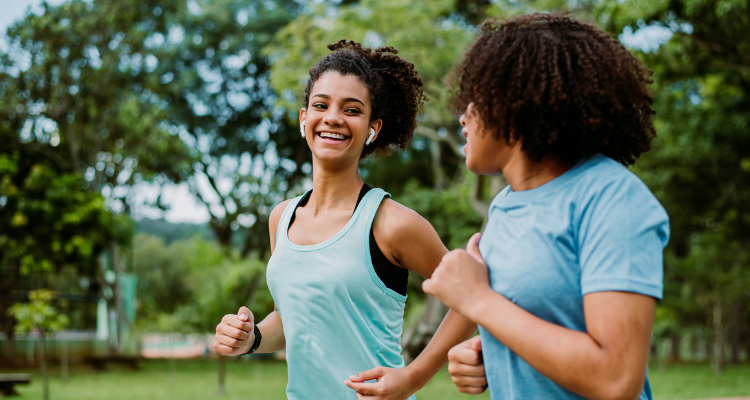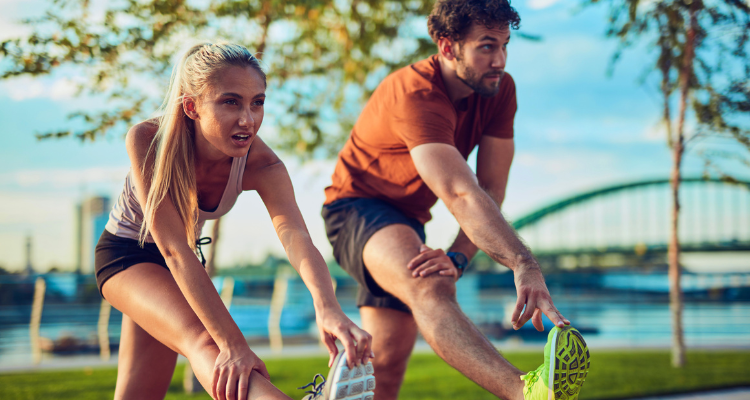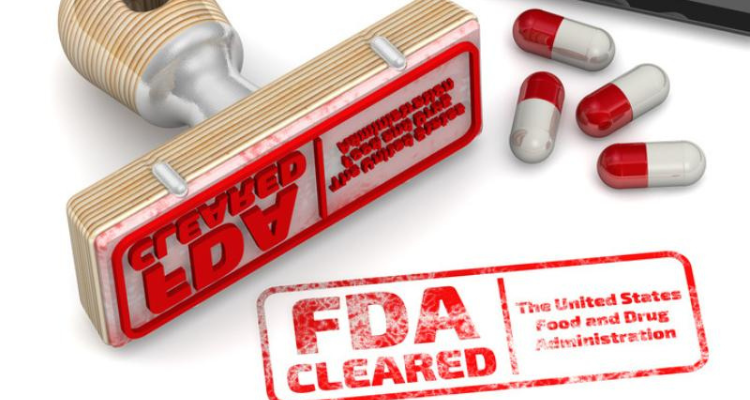
Teens are encouraged to get at least an hour of physical exercise daily, but high school gym class is only keeping them active for an average of 16 minutes. Many teens are hitting the gym to close that gap, and research supports their ability to lift weights and benefit from muscle recovery supplements.*[1]
In the perpetual push and pull between sedentary rest and frenetic activity, teens are expected to strike the perfect balance in their workout routine. They can engage in weight lifting and high-intensity training if they observe rest days. They can even take certain dietary supplements to aid in muscle support and overall performance.*
Around the world and throughout history, each culture has developed a lifestyle meant to embrace this need for balance as true wellness. While it is important to engage in some motion, action, and high-intensity (yang), it’s just as necessary to enjoy ample rest, stillness, and quiet (yin).
American teens are at a disadvantage in attaining true wellness, finding themselves in the midst of a high-stress, high-expectation society often described as a “pressure cooker.”
With positive modeling on wellness concepts, exercise routines, and safe supplementing, teens can learn to develop a positive body image, a healthy relationship with real foods, and realistic long-term fitness goals for life.
Exercise for Teens: How Much is Too Much?
Perfectly demonstrating the imbalance of modern society, American teens are often getting either far too little exercise or far too much exercise. The CDC says teens should do “60 minutes or more of moderate to vigorous physical activity daily.”[2]
Regular exercise is shown to promote stronger muscles and bones in teens, as well as a healthy body fat to weight ratio, improved cognition, and stable moods. Ideally, the one hour of daily exercise is comprised of a variety of cardio and strength training activities that are challenging yet enjoyable.
While most of the focus seems to be on getting teens to exercise more, there are also concerns about those who are exercising too much. As social media floods their smartphone feeds with filtered images and unrealistic diet and exercise regimens, teens can be easily swayed in the direction of obsessive workouts or extreme diets.
Impressionable young people can see influencers promoting certain supplements or equipment and believe that they, too, can easily look like that if only they buy the product or service offered. Young men are encouraged to “bulk up,” while young women are often encouraged to “slim down,” and many will sacrifice true health and wellness in their attempts.

Safe Muscle Support Supplements for Teens*
Although research is much more limited in teens than in adult populations, there are some dietary supplements that are generally considered safe in teens, if used correctly in moderation. Here is our top ten list of safe muscle support supplements for teens*:
- Protein Powder. If teens are not getting the RDA of around 50g of protein daily from food, or around 60g for teen athletes, they can safely supplement with a high-quality protein powder like Creamy Vanilla Vegan Protein to help support muscle tissue repair.*
- Vitamin D. Insufficiency of Vitamin D is a global problem, and is associated with bone fractures in adolescent athletes.*[3] Supplementing with Vitamin D3 supports strong bones, healthy immune responses, and normal testosterone levels in teens, which also promotes balanced moods and emotions.*
- Zinc. Zinc supplementation can reduce the additional burden of free radicals that physical exercise creates in the body.*[4] Teens can supplement with around 23mg daily to assist in safely reaching fitness goals and supporting healthy hormone levels.*
- Omega-3. College athletes tend to be low in these fatty acids, and sports dieticians encourage eating more fatty fish or taking high-quality supplements like Omega 3 HP-D to support performance and normal recovery from muscle soreness.[5]
- Ashwagandha. Used for thousands of years in India as an important herb in Ayurvedic medicine, as a “growth tonic” for children, modern research reports no serious adverse effects when using the property prepared adaptogenic root.[6] “Ashwagandha,” when translated from Sanskrit, means that this powder will give a person the strength and vitality of a horse.*[7]
- Rhodiola. Another adaptogenic herb, rhodiola is shown in studies to support muscle and joining health.[8] More research is needed, but studies indicate it could also enhance physical performance and support mental alertness.[9]
- Turmeric. This powerhouse herb with a rich culinary history is used to aid post-workout muscle aches and sore joints.* High-quality supplements like Curcumin C3 Complex will blend in black pepper for maximum bioavailability in the body.*
- Creatine. Once considered controversial for use in teens, creatine supplementation in the youth population is now well accepted. Used to increase lean muscle mass and high-intensity training capacity, teens can safely use up to 30g daily of a high-quality creatine supplement.*[10]
- Branched-chain amino acids. Teens can use BCAAs to support the body’s ability to repair and build muscle tissue with supplements like Maxi-BCAA as a post-workout drink.*
- Multivitamin. Don’t forget the obvious—a high-quality multivitamin and mineral supplement designed to support normal repair and tissue growth throughout the adolescent body, as well as healthy immune and cardiovascular function.*
Supplements Teens Should Avoid
With their still-developing bodies and minds, teenagers have unique nutritional needs. Being an athlete or having a workout routine adds additional layers of concerns. Be sure to discuss with your teen’s pediatrician or sports nutritionist any supplement regimens before starting.
Here are a few common options that we do not recommend for use in teens:
- DHEA. Although commonly used by adults as a performance enhancing substance, DHEA is a hormone that should not be taken by teens or children.*
- Tongkat. This trendy southeast Asian medicinal plant is being touted as an easy way to raise testosterone and thus help teens bulk up at the gym.* Unfortunately, research does not fully support these claims, and the safety has not been established in adolescents.
Many supplements in the fitness industry may tout safety and efficacy, but the bottom line is that research is largely lacking in adolescent populations. Most labels will have a “do not use if under 18” clause, often to protect the company and the teen from unknown dangers.
Is Your Teen Overdoing it with Exercise or Supplementation?
With seemingly unlimited access to ordering supplements online and watching workout hacks online, teens can easily fall victim to unhealthy trends.
More is not always better when it comes to exercise and supplementation. Taking an excessive amount of protein powder might just be useless, but synthetic testosterone can be downright dangerous. Here are some signs that your teen could be overdoing it and potentially affecting their health:
- Anxiousness around not meeting fitness goals
- Fear or panic about missing a workout
- Obsessive or compulsive exercise or eating behaviors
- Isolating to work out instead of socializing with friends and family
- Disruption or absence of menstruation
- Exhaustion or constant fatigue
- Severely restricting food or heavily relying on supplements for sustenance
Takeaway: How Teens Can Safely and Effectively Enhance Workouts and Recovery Time
In our fast-paced modern world, teens are as susceptible to stress as adults are. Their developing bodies are in need of exercise, in moderation, and can be supported with some targeted high-quality recovery supplements.*
Starting with a healthy diet, rich in whole foods like organic, grass-fed meat and a colorful variety of vegetables, is the foundation for a healthy body and mind. When physical exercise creates higher needs, certain supplements can help fill the gaps and aid normal muscle repair while supporting the immune and cardiovascular systems.*
Remember that more isn’t always better. Just because you could boost testosterone doesn’t mean you should. Similarly, a thinner body doesn’t always equate to a healthier person. Finding the balance between the active, yang, elements of life and the restful, yin, components takes time for teens to figure out. Having positive adult role models to influence their exercise, food, and supplementation choices is key.
As with all fitness plans, be sure to discuss any questions or new regimens with your—or your teen’s—integrative doctor. Follow the basic strategies for health and wellness, no matter how old you are. Stay active, get restorative sleep, hydrate, manage stress, and eat a variety of nutrient-dense foods.

[1] https://www.publicschoolreview.com/blog/the-pros-and-cons-of-mandatory-gym-class-in-public-schools
[2] hhttps://www.cdc.gov/physical-activity-education/about/?CDC_AAref_Val=https://www.cdc.gov/healthyschools/physicalactivity/index.htm
[3] Haase DR, Brown K, Templeton KJ. Adolescent Athlete Stress Fractures Associated with Vitamin D Insufficiency: Three Cases with Review of the Literature. JBJS Case Connect. 2021 Feb 19;11(1). doi: 10.2106/JBJS.CC.20.00367. PMID: 33617155.
[4] Kara E, Gunay M, Cicioglu I, Ozal M, Kilic M, Mogulkoc R, Baltaci AK. Effect of zinc supplementation on antioxidant activity in young wrestlers. Biol Trace Elem Res. 2010 Apr;134(1):55-63. doi: 10.1007/s12011-009-8457-z. Epub 2009 Jul 14. PMID: 19597720.
[5] Heileson JL, Elliott A, Buzzard JA, Cholewinski MC, Jackson KH, Gallucci A, Funderburk LK. A Cross-Sectional Analysis of Whole Blood Long-Chain ω-3 Polyunsaturated Fatty Acids and Its Relationship with Dietary Intake, Body Composition, and Measures of Strength and Power in Collegiate Athletes. J Am Nutr Assoc. 2023 Jan;42(1):94-100. doi: 10.1080/07315724.2021.1995910. Epub 2021 Dec 13. PMID: 34898402.
[6] Tandon N, Yadav SS. Safety and clinical effectiveness of Withania Somnifera (Linn.) Dunal root in human ailments. J Ethnopharmacol. 2020 Jun 12;255:112768. doi: 10.1016/j.jep.2020.112768. Epub 2020 Mar 19. PMID: 32201301.
[7] https://www.gavinpublishers.com/article/view/merging-ayurvedic-ashwagandha-with-traditional-chinese-medicine-part-1-foundation-in-ashwagandha-physiological-effects-clinical-efficacy-and-properties#:~:text=Ashwagandha%20has%20been%20used%20as,and%20nervous%20breakdown%20%5B4%5D.
[8] Sellami M, Slimeni O, Pokrywka A, Kuvačić G, D Hayes L, Milic M, Padulo J. Herbal medicine for sports: a review. J Int Soc Sports Nutr. 2018 Mar 15;15:14. doi: 10.1186/s12970-018-0218-y. PMID: 29568244; PMCID: PMC5856322.
[9] Ishaque S, Shamseer L, Bukutu C, Vohra S. Rhodiola rosea for physical and mental fatigue: a systematic review. BMC Complement Altern Med. 2012 May 29;12:70. doi: 10.1186/1472-6882-12-70. PMID: 22643043; PMCID: PMC3541197.
[10] Kreider, R. B., Kalman, D. S., Antonio, J., Ziegenfuss, T. N., Wildman, R., Collins, R., Candow, D. G., Kleiner, S. M., Almada, A. L., & Lopez, H. L. (2017). International Society of Sports Nutrition position stand: safety and efficacy of creatine supplementation in exercise, sport, and medicine. Journal of the International Society of Sports Nutrition, 14, 18. https://doi.org/10.1186/s12970-017-0173-z












.jpg)





